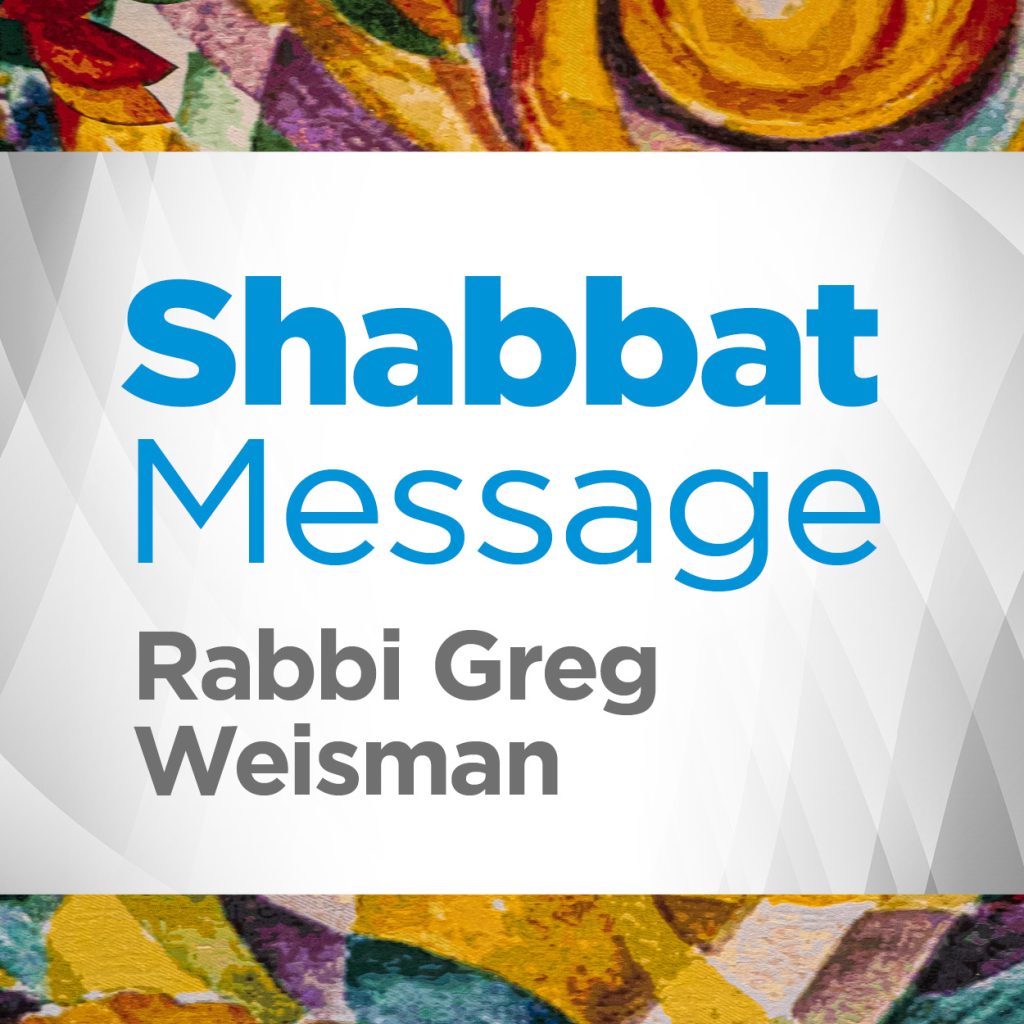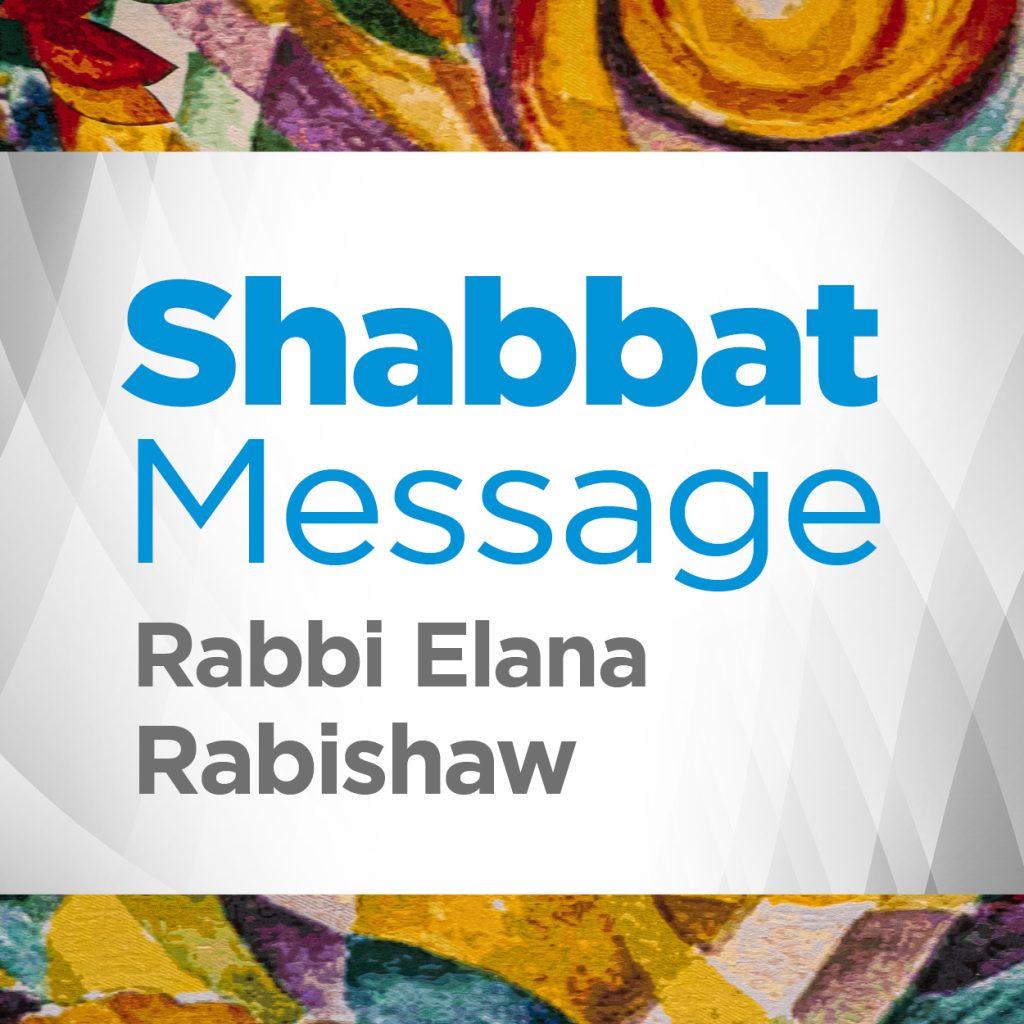There is nothing like gathering face to face.
After so many months of Zoom meetings, FaceTime calls, and virtual Shabbat experiences, this Shabbat at Temple Beth El is a special one. Tonight is Night of 50 Shabbats, and like so many of you I am looking forward to spending some time with friends this evening as we welcome and celebrate Shabbat together.
As we sit face to face with one another, we can also remember the stories in this week’s Torah portion, Vayeitzei, where our ancestors’ experiences of beholding each other’s countenances were telling in a variety of ways. At various points in the story, our ancestors see each other and recall their past shared experiences. But throughout the portion, while they look at one another, they fail to recognize each other, failing to see the fullness of the person, and instead see what they want to see in the other person.
It was in this portion that Jacob, enamored with Rachel, awoke the morning after his wedding to learn that his father-in-law had deceived him and brought Leah to be wed instead, a subterfuge made possible by the veil covering her face. From that, at our weddings we ensure that the couple see each other face to face, often at the badeken ceremony before they join each other under the chuppah.
That episode, between Jacob and his father-in-law Laban, was the beginning of a series of acrimonious moments between them, ending with Jacob and his family fleeing back toward the land of Canaan. Jacob guides his wives and their children to quickly pack and go, and chooses not to let anyone in Laban’s camp know that they are leaving. Laban feels deceived and deprived of the chance to send his daughters on their way with well wishes and a proper goodbye. To complicate things, and for reasons not apparent in the text, Rachel steals her father Laban’s idols. Laban follows after Jacob, Rachel, and Leah, catching them and confronting them for leaving with such haste and secrecy, and for stealing the idols on their way out the door.
Jacob invites Laban to look through their things, offering him the chance to find the idols. But the language in the Torah is curious; the word Jacob uses typically means “to recognize.” “In the presence of our kin, ‘go and try to recognize’ what I have of yours and take it.”
As Rabbi Aviva Richman notes, this is an unusual usage of that Hebrew word, but one that fits the story of Jacob. The same verb was used when Jacob went to his father to ask for a blessing and had disguised himself as his older brother Esau. Isaac did not “recognize” his own son, and bestowed Jacob with the first-born’s blessing. Later, when Jacob’s sons turn against their brother Joseph, they bring back his bloodstained coat of many colors and tell their father to “recognize” that it is Joseph’s. That word “recognition” returns again when the brothers appear before Joseph, who had become the viceroy of Egypt; Joseph recognized them but the brothers did not recognize him.
In each of these episodes, someone is intentionally hiding something. Laban, his daughter’s identity. Jacob, that he was the second born and that Rachel had taken her father’s idols. The brothers that they had sold Joseph. But, Joseph sees them for who they are, and he and his sons break the family tradition of deceit and deception.
Over the past year and a half, we have all grown accustomed to being able to frame our presentation to the world. What we have shown the world through our webcams has left out everything outside of the frame. With the right background and lighting, you might think I am wearing a suit and sitting at my office, when in fact I am in my dining room wearing slippers. I might appear to be looking right at you, but in fact I’m bingeing the latest Netflix series.
There may have been some solace from navigating the difficulties of the pandemic that came from those small deceptions. But, reemerging into the world of face to face, when we appear in the fullness of our physical beings should also be a reminder to present ourselves in the fullness of our spiritual and emotional beings as well, to be in our full humanity. When we do so, we invite our friends and family not only to see us to but to recognize us and embrace us. It may be awkward at first, but with time and a bit of patience we can recognize each other’s presence and be blessed by it. As we do may we take the lessons of Jacob and his generation to heart, and remind ourselves to be who we want to be, and recognize the fullness of all whom we encounter.
Shabbat Shalom,

Rabbi Greg Weisman









